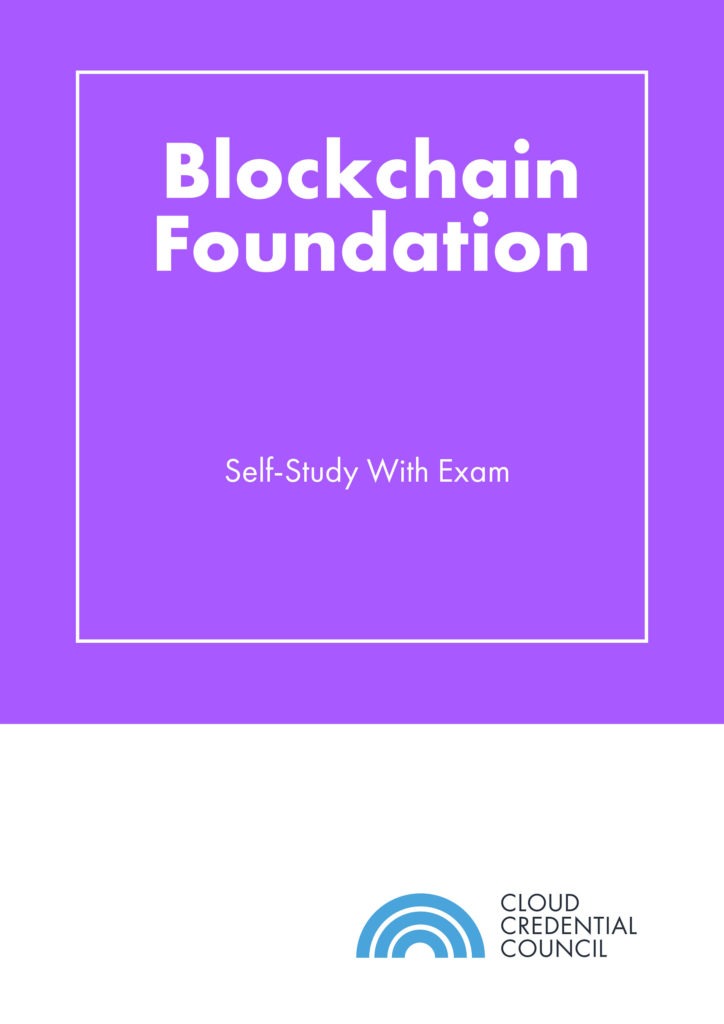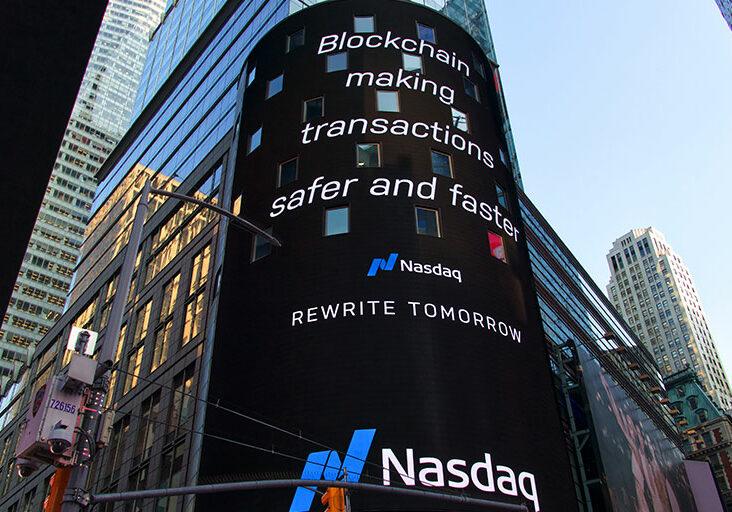What Exactly Is Blockchain?

Joey van Kuilenburg

A blockchain is a distributed system that consists of a network of computers connected over the Internet which collectively performs the bookkeeping. In blockchain, one ledger is distributed and maintained across the network. Every computer in the network validates the transactions, but no one has control over the network, unlike multiple users working in a centralized server.
- A blockchain contains a series of blocks, which are data units used to store transactional information of the network. For a block to be added to a blockchain, the following steps should happen:
- A transaction must occur and should be verified by a network of computers.
- The transaction must be stored in a block; implying upon approval of the transaction by the network, the dollar value, your digital signature, and the receiver’s digital signature will be stored in a block.
- The block must be given a hash to differentiate it from other blocks. This block also contains information of the hash of the most recent block added into a blockchain. Once hashed, this block can be added to the blockchain.
- After the block is added to the blockchain, the details of this transaction will be public and anyone within the network can look into this transaction information, such as who was the sender? Who is the receiver? When did the transaction happen? Who added this transaction to the block?, etc. The data is verifiable and auditable but not editable.
A block is nothing but digital information. A “chain” is defined as a public database. So, when we say blockchain – we mean to talk about the digital information which is stored in a public database.
Blockchain benefits
- Transparency: In blockchain, all network participants have access to the same database information and this shared version can only be updated through consensus. Even if a single record is changed, there is a version history of blocks with the previous information. Thus, data on a decentralized blockchain is more accurate and transparent than on centralized databases.
- Reduced transaction cost: Since all network participants have access to the same version of the blockchain database, it eliminates the earlier process of reconciling different databases (ledgers) as well as trusted third party intermediaries. This results in a reduction of expenses for a business. The Internet unlocked new economic value by dramatically lowering the cost of connections. Similarly, blockchain could dramatically reduce the cost of transactions. It has the potential to become the system of record for all transactions. If that happens, the economy will undergo a radical shift, as new, blockchain-based businesses emerge.
- Faster transaction settlements, decentralization, user-controlled network: By streamlining and automating traditional paper-heavy processes with blockchain, transactions can be completed faster and more efficiently. Reconciliation of ledgers and third-party trusted intermediaries can be eliminated because records stored in blockchain can be accessed by all network participants. This results in faster clearing and settlements.
- Efficiency, auditability, and traceability: For companies with a complex supply chain, it can be quite hard to trace an item to its source. When the whole supply chain from sourcing of raw material to production of goods to the transportation are recorded in a blockchain, there’s an audit trail that shows where a material / good came from and every stop it made on its journey. This historical transaction data can help to verify the authenticity of goods in a supply chain and prevent fraud.
- Security: Before being recorded in the blockchain, transactions are approved by consensus, encrypted, and linked to the previous block. Malicious actors cannot change this data because these transactions are then stored across a network of computers, rather than a centralized database. Blockchain can help prevent fraud in industries like supply chain, financial services, legal, government, and healthcare due to these advantages.
- Worldwide adoption: Blockchain has been adopted worldwide and has the support of many investors in every industry.
- Automated operations: Operations are fully automated through software. Private companies need not run any operations.
- Open: Open source technology is used in the development of blockchain. Open source community carries out its operations.
- Distributed architecture: Records are stored and maintained in all nodes of the network, which makes it distributed mode. If any node goes down, it can be retrieved from the nearby node. Flexible: Blockchain is programmable using basic programming concepts.
Types of blockchain
Public blockchain
- A public blockchain is a blockchain technology that is completely open to the public. It uses some mechanism to incentivize participating parties, which in turn increases the number of participants in the network. One of the best and largest examples of public blockchain is Bitcoin. In this aspect, it is like the Internet where anyone can join the open network and participate by creating new content or improving upon existing ones.
- A public blockchain allows anyone to join the network and have identical privileges to view, modify, or confirm the transaction. The ledger is public to everyone and the transactions are viewable by everyone within the network, but the identities of the transacting parties are never revealed.
Private blockchain
- A private blockchain is a blockchain technology that is not open to the public. The access to a private blockchain will be limited to the parties involved in the creation of that network, or those granted access to it by the network starters. Only a selected group of members within the network have the privileges to view, modify, and authorize transactions. In this aspect, it is like an intranet. It is also decentralized, immutable, transparent, and highly secure like a public blockchain.
- Some examples of a private blockchain are Quorum, “an Ethereum-based distributed ledger protocol with transaction/ contract privacy and new consensus mechanisms” created by JP Morgan; Corda, “an open source blockchain project designed for businesses to transact directly between one another, in strict privacy”; Hyperledger, which is an “open source collaborative effort created to advance cross-industry blockchain technologies”. Hyperledger is hosted by the Linux Foundation and includes leaders in finance, banking, Internet of Things, supply chains, manufacturing, and technology.
Hybrid blockchain
- The third type of blockchain, and not very common, is the hybrid/consortium blockchain. A hybrid blockchain connects a public blockchain with a private blockchain (running in a permission environment), limiting the access.
- A hybrid blockchain offers the benefits of both public and private blockchains. It consists of the public blockchain (that all participants are a part of) and a private network (also referred to as a permissioned network) that restricts participation to selected members. Hybrid provides a blockchain solution that is a better fit for highly regulated enterprises and governments as it enables them to have the flexibility and control over what data is kept private versus that shared on a public ledger. These organizations also require faster transaction times, security, and auditability features that cannot always be provided by public blockchains.
- A hybrid blockchain provides most of the benefits of a private blockchain like efficiency and transaction privacy, without giving operational control to only one entity. It is a concept similar to trusting a council of elders. The council members are known trusted entities and they can decide who has read access to the blockchain ledger. Consortium blockchain platforms have the same advantages of a private blockchain but operate under the leadership of a group instead of a single entity. This platform is suited for collaboration between organizations.
Video Summary
Courses to help you get
results with Blockchain
Blockchain Foundation™
The industry-recognized CCC Blockchain Foundation provides various practical exercises that allow you to experience two of the most popular cryptocurrencies – Bitcoin and Ethereum. The course’s exposure to real-life blockchain and crypto trading ensures the knowledge you gain is ready to be implemented.

About the Author
Joey is a marketer who prefers to put in a bit of extra work to make an “ok” product or experience an amazing product or experience.
Never miss an interesting article
Get our latest news, tutorials, guides, tips & deals delivered to your inbox.
Keep learning




